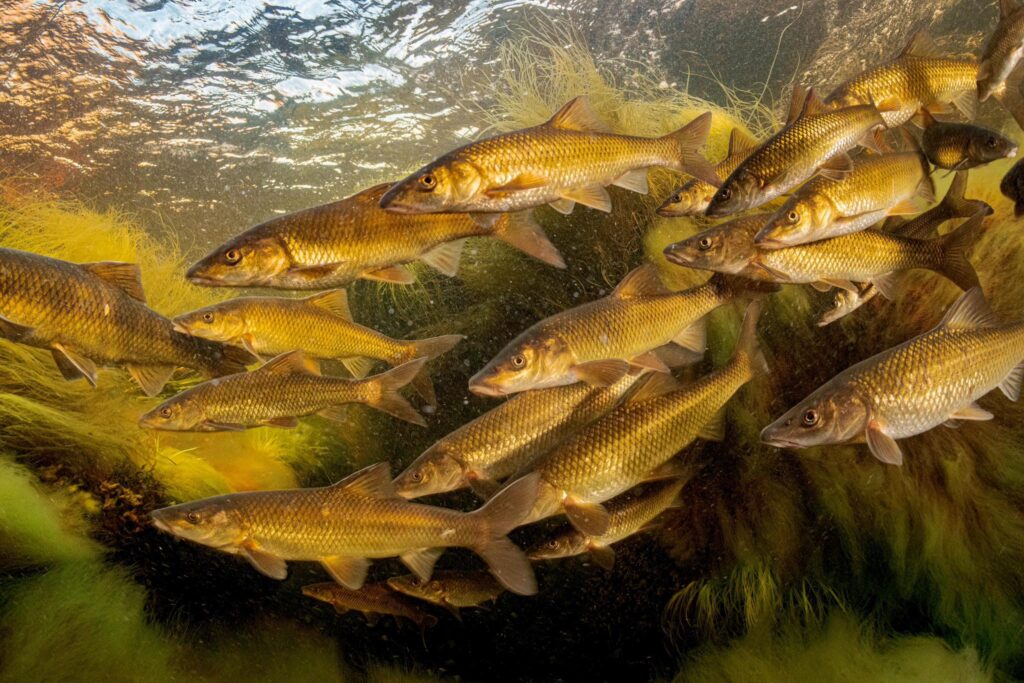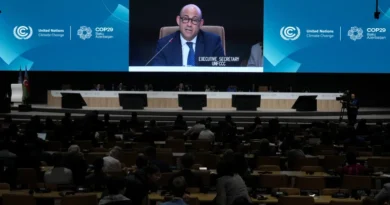One in Four Freshwater Fish Species in Africa Threatened with Extinction, WWF Warns in New Report
A new report released today by the World Wide Fund for Nature (WWF) has raised the concerns over Africa’s freshwater fish crisis, revealing that 26% of assessed species are threatened with extinction. Titled “Africa’s Forgotten Fishes,” the report comes ahead of the global wetlands summit, Ramsar COP15, to be held in Zimbabwe later this month.
Africa is home to more than 3,200 freshwater fish species, with 28 new species described in 2024 alone. Despite this rich biodiversity, freshwater ecosystems are under siege from pollution, habitat destruction, invasive species, overfishing, and climate change.
The situation is particularly dire in regions like the Zambezi floodplain, where fish catches have plummeted by up to 90%, and Lake Malawi, where the iconic chambo tilapia has declined by 94%.
“Africa is a global hotspot of freshwater fish diversity, but also a hotspot of risk,” said Eric Oyare, WWF Africa Freshwater Lead. “These declines are a red flag for the broader health of freshwater ecosystems, which are the life support systems for millions of people.”
The report warns that Africa’s freshwater fish, essential for food security, culture, and livelihoods, are collapsing under the weight of multiple stressors:
- Habitat destruction due to dams, mining, and deforestation
- Pollution from agriculture, urban runoff, and industry
- Overfishing and use of destructive gear like mosquito nets
- Climate change, which alters rainfall patterns and heats lakes
While the threats are growing, the report also highlights extraordinary species like the African lungfish, which can survive for years buried in mud, and the blind cichlid of the Congo Basin, which has adapted to life in subterranean caves.
WWF and partners, including The Nature Conservancy (TNC), have developed an Emergency Recovery Plan to reverse the decline. It outlines six urgent actions:
- Let rivers flow more naturally
- Improve water quality
- Protect and restore critical habitats
- End unsustainable resource use
- Control invasive species
- Remove obsolete barriers in rivers
“The disappearance of freshwater fish is not just a biodiversity crisis; it’s a direct threat to food, culture, and economic survival for millions across Africa,” said Machaya Chomba, Africa Freshwater Protection Manager at TNC.
The report stresses that community-led conservation efforts are already proving effective in countries like Tanzania, Zambia, and Namibia, where locals are restoring habitats and co-managing fisheries. Additionally, the Freshwater Challenge, now backed by 20 African nations, presents a hopeful pathway forward.
“It’s time we stop treating freshwater fishes as an afterthought,” said Nancy Rapando, WWF Africa Food Futures Lead. “They are central to Africa’s biodiversity, development, and future. We must act now before the rivers dry out.”
The Ramsar COP15 conference, scheduled from July 23–31, 2025, is expected to bring together governments, scientists, and conservationists to set an agenda for freshwater restoration. WWF is calling on African leaders to commit to protecting inland waters under the 30×30 Global Biodiversity Framework, scaling up the Freshwater Challenge, and implementing the Recovery Plan.
“The future of Africa’s rivers and fishes is inseparable from the future of its people,” said Itai Chibaya, WWF Zimbabwe Country Director. “We need bold action at Ramsar COP15 to restore the life support systems of this continent.”



